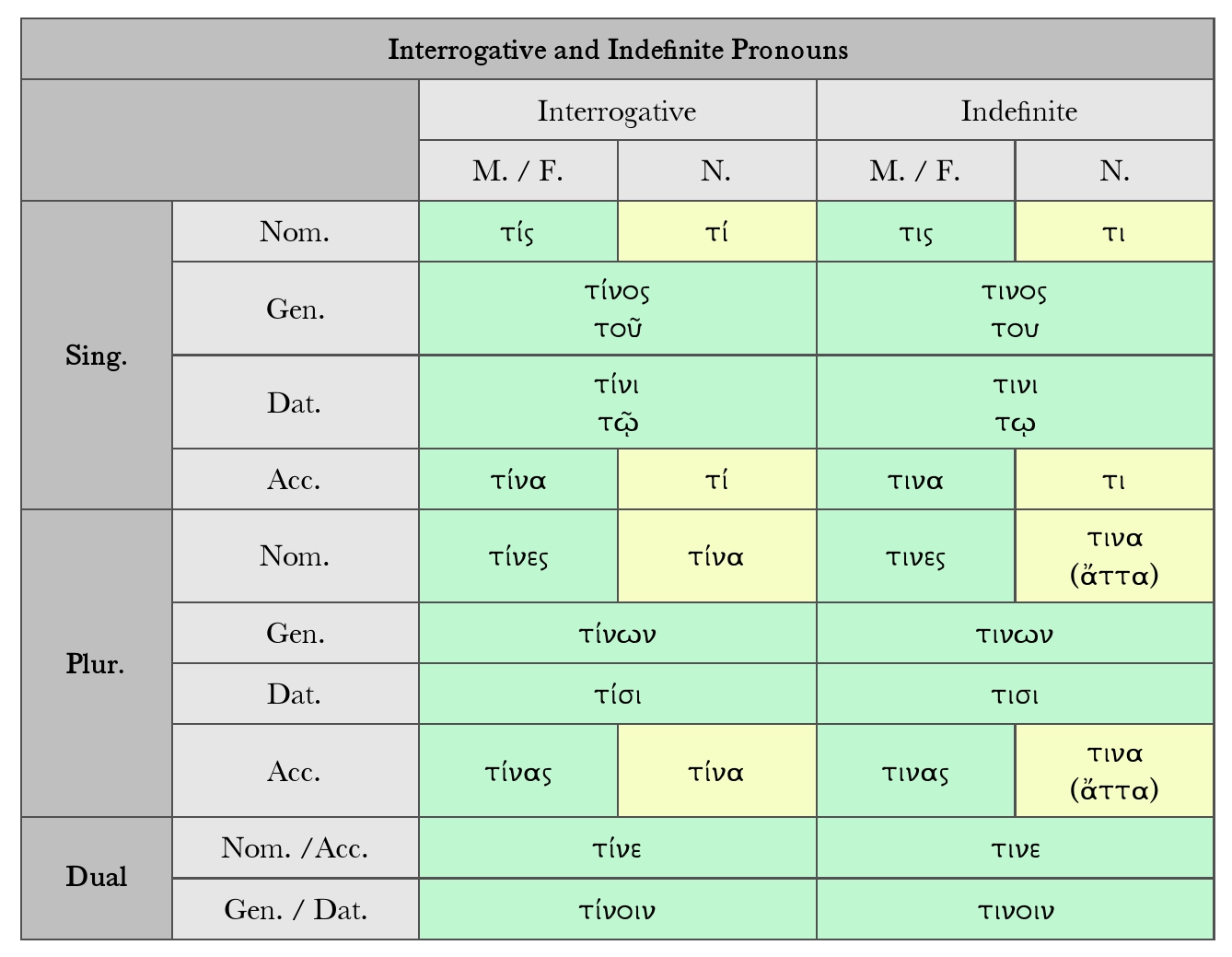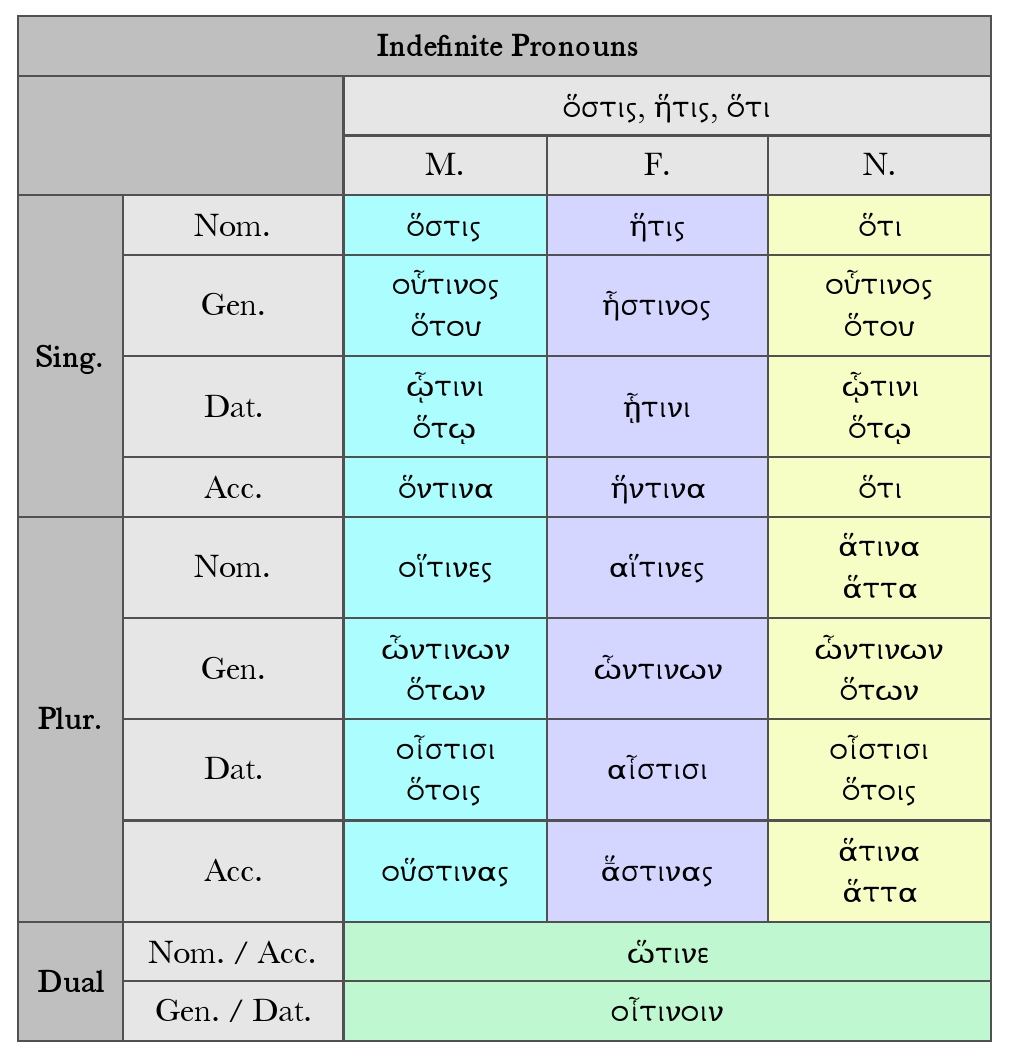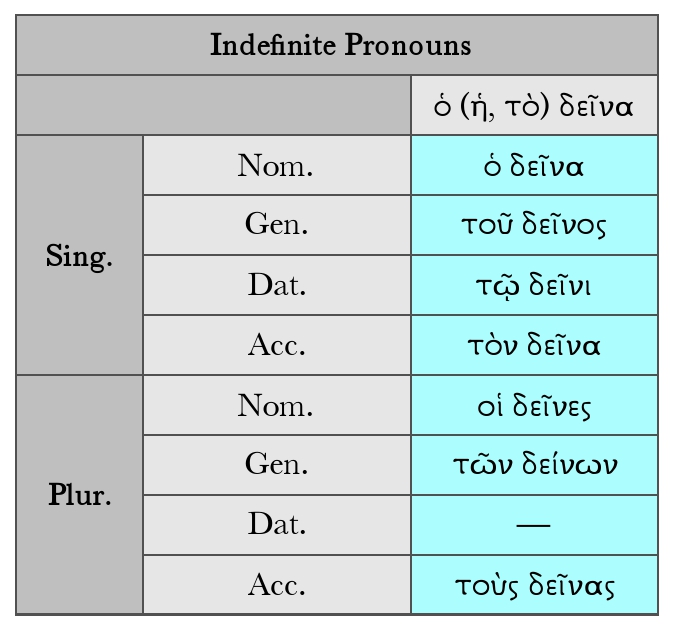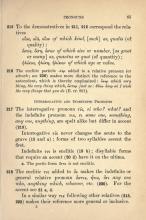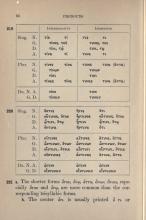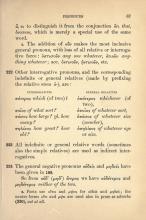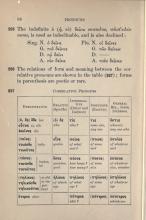217. The interrogative pronoun τίς, τί (who? what?) and the indefinite pronoun τις, τι (some one, something, any one, anything) are spelt alike but differ in accent (§ 219, below).
Interrogative τίς never changes the acute to the grave (§§ 15 & 15.a); forms of two syllables accent the first.
Indefinite τις is enclitic (§ 19.b); disyllabic forms that require an accent (§ 20.d) have it on the ultima.
a. The poetic form ἄττα is not enclitic.
218. The enclitic τις added to ὅς makes the indefinite or general relative pronoun ὅστις, ἥτις, ὅτι (any one who, anything which, whoever) etc. (§ 220, below). For the accent see §§ 21.a & d.
In a similar way τις following other relatives (§ 215 and § 222, below) makes their reference more general or inclusive.
219. Interrogative and Indefinite Pronouns: τίς, τις
220. Indefinite Pronouns: ὅστις, ἥτις, ὅτι
221. a. The shorter forms ὅτου, ὅτῳ, ἅττα, ὅτων, ὅτοις, especially ὅτου and ὅτῳ, are more common than the corresponding trisyllabic forms.
b. The neuter ὅτι is usually printed ὅ τι or ὅ, τι to distinguish it from the conjunction ὅτι (that, because,) which is merely a special use of the same word.
c. The addition of οὖν makes the most inclusive general pronoun, with loss of all relative or interrogative force.
ὁστισοῦν (any one whatever), ὁτιοῦν (anything whatever)
ὁντινοῦν, ἡντινοῦν (accusative) etc.
222. Other interrogative pronouns, and the corresponding indefinite or general relatives (made by prefixing the relative stem ὁ-), are:
|
Interrogatives |
General Relatives |
|
πότερος which (of two)? |
ὁπότερος whichever (of two) |
|
ποῖος of what sort? |
ὁποῖος of whatever sort |
|
πόσος how large? |
ὁπόσος of whatever size (number) |
|
πηλίκος how great? how old? |
ὁπηλίκος of whatever age or size |
223. All indefinite or general relative words (sometimes also the simple relatives) are used as indirect interrogatives.
224. The general negative pronouns οὐδείς and μηδείς have been given in § 189.
So from οὐδʼ (μηδʼ) ἕτερος we have οὐδέτερος and μηδέτερος (neither of the two).
a. Poets use οὔτις and μήτις for οὐδείς and μηδείς; the neuter forms οὔτι and μήτι are used also in prose as adverbs (§ 230), not at all.
225. The indefinite ὁ (ἡ, τὸ) δεῖνα so-and-so, what's-his-name, is used as indeclinable, and is also declined:

